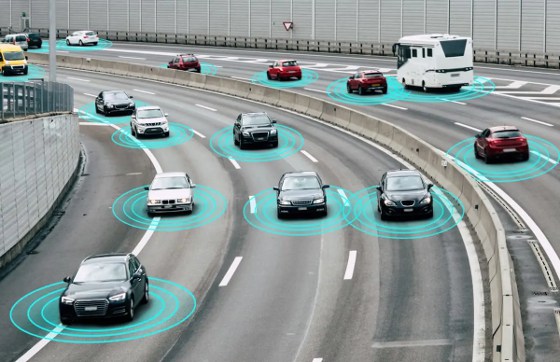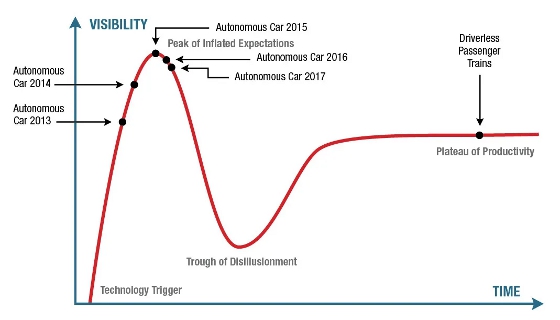 |
| March 12, 2019 | Volume 15 Issue 10 |
Designfax weekly eMagazine
Archives
Partners
Manufacturing Center
Product Spotlight
Modern Applications News
Metalworking Ideas For
Today's Job Shops
Tooling and Production
Strategies for large
metalworking plants
Autonomous cars are the future of transport? Don't believe the hype, says Monash University Professor in Transport Engineering

By Graham Currie, Director of Monash Infrastructure, Chair of Public Transport, Professor in Transport Engineering, Monash University
Public transport is the beating heart of a successful and livable city, and will be for a long time to come, likely forever. If you don't believe that, let me sell you a fleet of autonomous cars now.
I'll even throw in a Segway, a flying car, a hovercraft, and a Sinclair 5 to sweeten the deal.
Because if you blindly believe the hype around autonomous cars at the moment, it should be an easy sale.
I, clearly, don't believe the hype. In fact, as a transportation researcher, I become enraged at the misinformation and rubbish being peddled about the future of transport, and the future of public transport in particular.
It's far too early to think autonomous cars will dominate travel in cities. They're not the answer to traffic congestion, and they certainly don't spell the end for public transport, as many have suggested.
The hype, at any rate, viewed within the theoretical framework of the Hype Cycle, has already entered the trough of disillusionment after reaching a peak of inflated expectation in 2015.

Despite this, though, commuters are still continuously presented with blanket statements that public transport has no future in the modern city and that it will be rendered obsolete by new modes of transport and mobility.
To borrow a now familiar phrase, it's fake news!
It flies in the face of facts and a long history of built knowledge about the human condition, economics, cities, and travel data.
The great sharing lie
It's easy to find detractors of public transport, not least of whom are the day-to-day users of trams, trains, and buses having to cope with unreliable services and overcrowding, caused mostly by lack of government infrastructure investment.
It's a disenchantment that feeds the narrative of autonomous car progressives -- that driverless cars are the future alternative to address the transport problems being faced by increasingly crowded cities.
The fundamental failure in this narrative is the assumption that public transport doesn't work and is too old to be involved in the automated vehicle technology trend.
The reality is that autonomous public transport vehicles already dominate land-based passenger travel.
Four in 10 railways in Asia have no drivers. Autonomous trains operate today in Vancouver, Barcelona, London, and very soon will operate in Sydney. Between 2006 and 2011, the number of kilometers automated trains operated doubled and, by 2025, this is expected to increase by more than 130 percent.
Mass transit, not single-occupancy cars
More cars and more roads are not the answer for congested cities.
Transit systems, liberated by the very technologies that make driverless cars possible, are the only option for shared occupancy at the volume needed to meet the needs of large and growing cities.
The imperative to make mass transit systems efficient and effective must be on government infrastructure investment agendas.
Now, about that sale ...
About the author
 Graham Currie is a renowned international public transport research leader and policy advisor with more than 30 years of experience. He's founder and director of the Public Transport Research Group at Monash U., and is one of the world's first professors in public transport. He aims to develop knowledge and training for the PT profession on a national and international basis.
Graham Currie is a renowned international public transport research leader and policy advisor with more than 30 years of experience. He's founder and director of the Public Transport Research Group at Monash U., and is one of the world's first professors in public transport. He aims to develop knowledge and training for the PT profession on a national and international basis.
Source: Monash Lens
Published March 2019
Rate this article
View our terms of use and privacy policy
